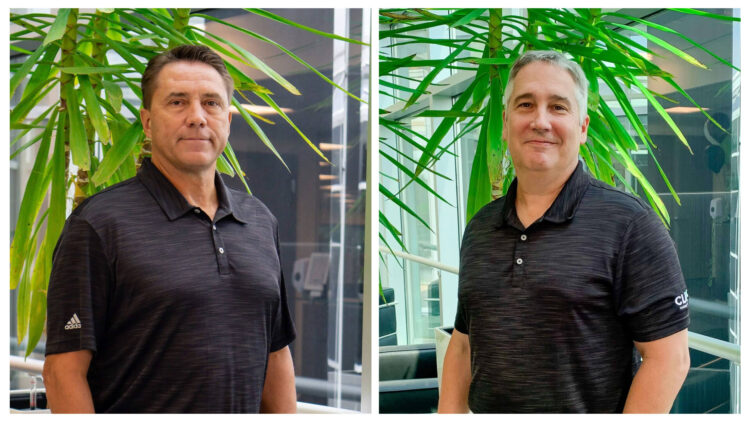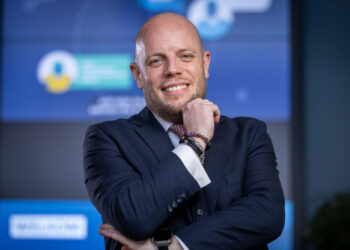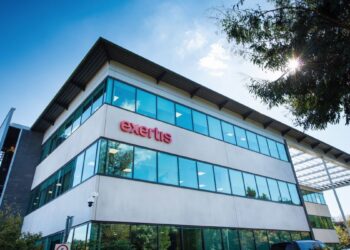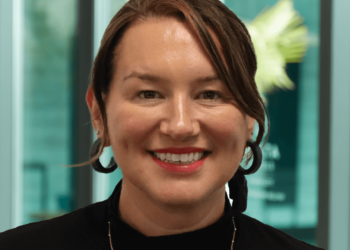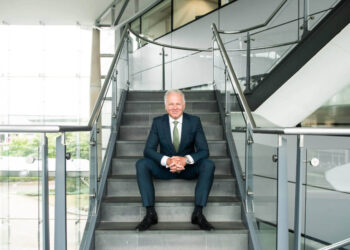“We’re close friends, as you can tell, and pick on each other a lot. We said ‘hey, let’s get back together, as we have so much more fun together’.”
Side by side, Dale Foster (speaking above) and Charles Bass have helped build US-based Climb Global Solutions into a $1bn-plus distributor with a $200m UK&I operation – the former as CEO and the latter as a VP with a penchant for vendor selection.
The duo both joined the NASDAQ-listed outfit in January 2018, having sold their previous distribution venture, Promark Technology, to Ingram in 2012.
Six years on, the Citrix, Trend Micro, VAST Data and Solarwinds partner has quadrupled its top line to $1.2bn, pared down its vendor linecard and expanded into Europe via a trio of acquisitions (most recently DataSolutions).
‘We knew we weren’t going to out-Ingram Ingram’
Talking to IT Channel Oxygen, Foster was eager to hammer home just how much he and Bass have helped change the character of Climb in the intervening period.
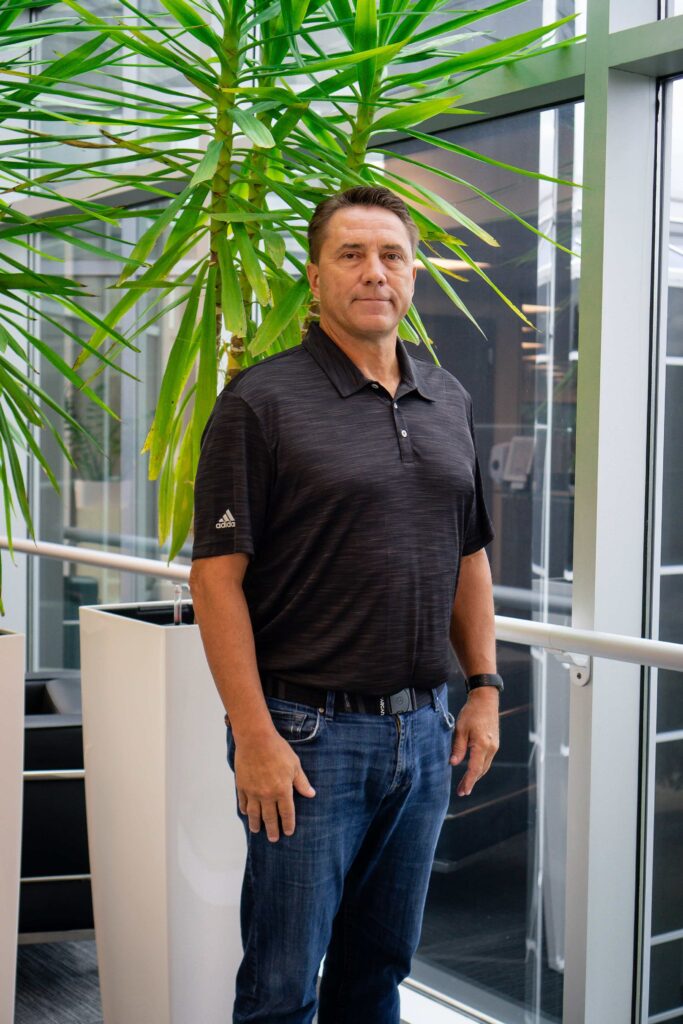
Upon their arrival in 2018, Climb (or Wayside Technology/Lifeboat as it was then branded) was selling “weirdware”, Foster said.
“Everyone who couldn’t get signed by the bigger distributors in North America would go to Lifeboat, and they would at least transact you,” he explained.
“But we found two holes. They weren’t really sales oriented, and they weren’t recruiting vendors. They were just transacting customers that came to them because they had a certain amount of vendors, or a certain type of vendor.”
Holding the job title of Vice President of Alliances and Marketing, Bass takes the lead when it comes to onboarding new vendors.
“We’ll evaluate between 175 and 200 vendors each year, to sign 12-16 contracts,” he explained.
“There are 3,000 tech start-ups that get more than $10m in funding, so there’s no lack of targets out there for us.”
But when it came to vendors, Climb had too many, said Bass, who positioned Climb as the antithesis of the big broadliners such as Ingram, TD Synnex and Arrow.
“When we came in, we knew we weren’t going to out-Ingram Ingram, or out-Arrow Arrow,” he said.
“We wanted to be a limited linecard, service-enabled player focused on the upper-left [quadrant] in Gartner – always the challengers. That’s what was left, and that’s where we knew we could win. There wasn’t competition there, and it was an under-serviced piece of the market.”
We try to tell each other ‘let’s be desperate’
Although Climb has reduced its line card from 455 to 100 vendors, Foster wants to go further.
“I would love to have 40 brands doing 90% [of the business],” he said.
“We still have a division called ‘Climb Elevate’ – which was Charles’ idea, and it works – where we have 300 brands we transact with but who don’t get any of our marketing and sales.
“It’s still a good-sized division, and if a company inside Elevate wants to invest in us, and vice versa, they can come back into the mothership.”
According to Foster, the US really only has five IT distributors – three of which are giants – while Europe has around 60-70.
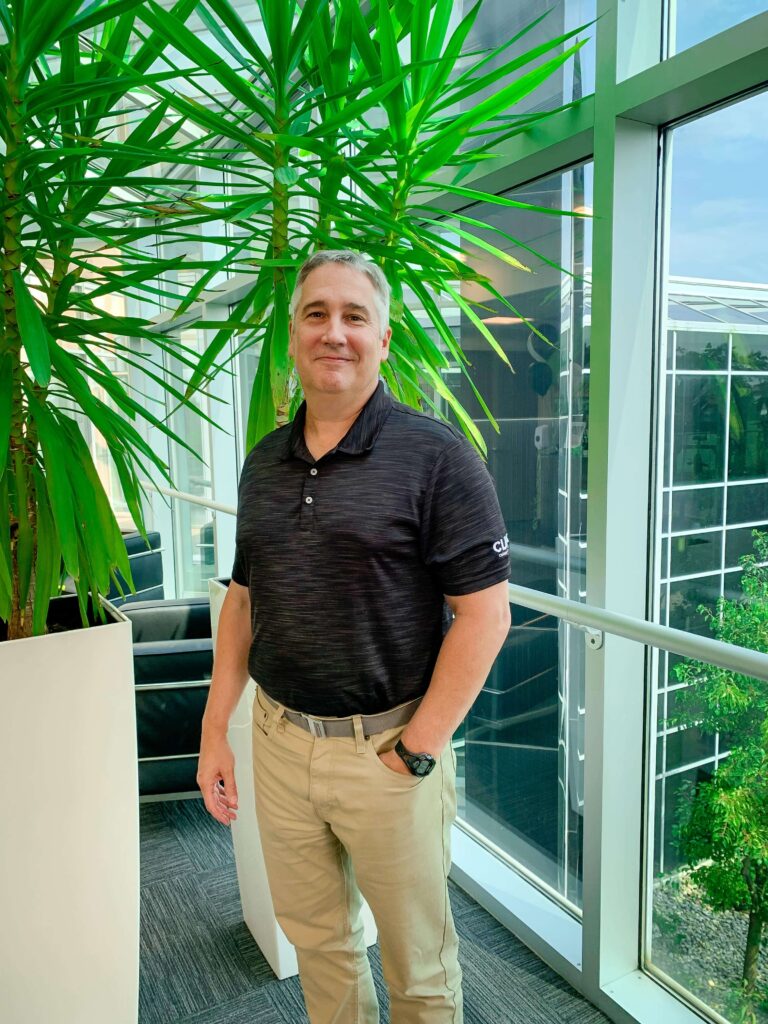
This meant Climb’s chosen business model had more in common with European VADs than its US contemporaries, Bass said.
“We were trying to behave like a western European-style distributor in North America before we even thought about acquiring [in Europe],” he explained.
Climb is targeting low double-digit growth in 2024, alongside further European M&A.
“We think we can double in size and still be seen as really disruptive in the market,” Foster said.
What keeps this distribution double act awake at night?
“When we got here, we were desperate to get involved. We try to tell each other ‘let’s be desperate’. We don’t want to be comfortable,”Dale Foster, Climb Global Solutions
“Two things,” Foster shot back.
“Firstly, losing a receivable that’s sizable. We extend very flexible credit terms over what the bigger disties do. When the market tightens, they tighten, and we take advantage of that.
“That keeps me up at night… And also losing one of our big vendors. But I don’t see that happening, because we’re so integrated. Even with Citrix [one of Climb’s few ‘tier ones’], I see how the teams are so involved and it’s almost as if they couldn’t live without us.”
Bass added: “We’re way more worried about not getting things done. We don’t worry about making mistakes. Not getting comfortable and getting things done every day is what we’re trying to do.”
“When we got here, we were desperate to get involved. We try to tell each other ‘let’s be desperate’. We don’t want to be comfortable,” Foster concluded.
Also on the call was CRO Gerard Brophy, whom Climb accumulated via its 2022 acquisition of UK cybersecurity VAD Spinnakar.
Stay tuned on IT Channel Oxygen for part two of the interview, which focuses on Climb’s European expansion, most-respected rivals and mission to “sell speed”…
Doug Woodburn is editor of IT Channel Oxygen


